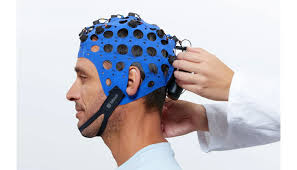The year 2024 marks the centennial of the discovery of the electroencephalogram (EEG) by German psychiatrist Hans Berger. The EEG, a medical test that measures the electrical activity of the brain, is a momentous breakthrough in the progress of neuroscience, neurology, and psychiatry. It has become a decisive tool for understanding the brain and diagnosing neurological disorders.
EEG was invented on July 6, 1924, by psychiatrist Hans Berger when he executed the first EEG recording on a human, a 17-year-old boy undergoing neurosurgery. At the time, Berger and other researchers were performing electrical recordings on the brains of animals.
In the years since the discovery of this device to monitor brain electricity, it has had a far-reaching effect on how scientists study the human brain and shaped researchers’ understanding of cognition, from perception to memory. It has also been important for diagnosing and guiding....

